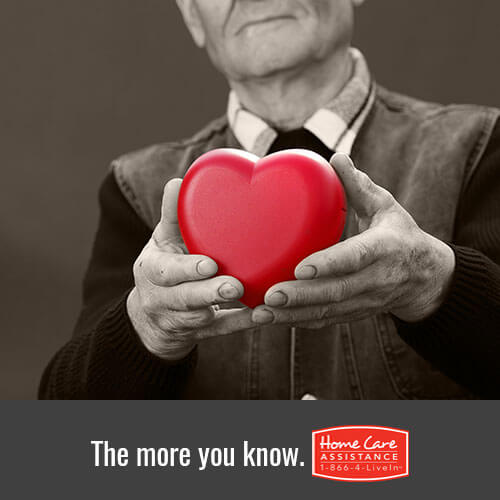
Because a healthy circulatory system spreads essential nutrients throughout the body, maintaining good circulation is critical for senior health. However, as certain age-related diseases or conditions can compromise this system, seniors are susceptible to poor circulation. If you’re caring for an elderly loved one, understanding bad circulation can help you keep your loved one healthy. For those providing home care, Philadelphia Home Care Assistance has discussed the symptoms, causes, and concerns of poor circulation.
The Symptoms
Bad circulation can lead to a variety of symptoms in seniors. If you’re concerned about your senior’s circulation, keep an eye out for visible signs of bad circulation, including infections that are slow to heal, as well as feet or hands that are often cold, swollen, or blue in color. As poor circulation can also have invisible symptoms, ask your loved one if he or she experiences numbness in his or her arms or legs, dizziness, frequent headaches, or high blood pressure. Because insufficient blood flow can also lead to cognitive challenges, take note if your loved one begins experiencing memory loss or delayed verbal responses.
The Causes
There are many factors and health conditions that can lead to problems with the circulatory system, including certain lifestyle factors. Obesity, certain nutritional deficiencies, smoking, sedentary lifestyle, and stress can all lead to difficulty with blood circulation. Likewise, chronic health conditions, such as diabetes and high cholesterol, can also prevent proper blood flow. To address lifestyle factors that contribute to poor circulation, ask your loved one’s hourly or live-in caregiver in Philadelphia to help him or her adopt and maintain a healthy diet and exercise regimen. That way, you can be sure that your loved one is safely taking proactive health measures to prevent circulatory system problems.
The Concerns
As poor circulation can lead to a variety of health concerns, it’s important to address symptoms of bad blood circulation with your loved one’s physician. While most circulation problems are not serious and can be easily remedied, sometimes poor circulation can lead to more serious conditions, like tissue and nerve damage or blood clots which can cause heart attack or stroke. Be sure that your loved one receives the care he or she needs to address poor circulation by seeking medical advice as soon as possible.
For seniors with physical challenges that make navigating the home difficult, poor circulation may be the result of a sedentary lifestyle. If your loved one has limited mobility as the result of a stroke, you can help him or her avoid circulation problems caused by sitting for long periods of time by hiring a stroke caregiver in Philadelphia. At Home Care Assistance, our stroke caregivers are expertly trained to provide mobility assistance and safety monitoring for physical activity and therapy regimens. To learn more about how our care services can help promote an efficient stroke recovery, as well as a healthy circulatory system, give a Care Manager a call at (215) 645.4663 or (484) 643.4663 and schedule a complimentary in-home consultation.